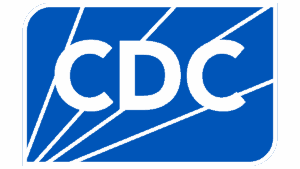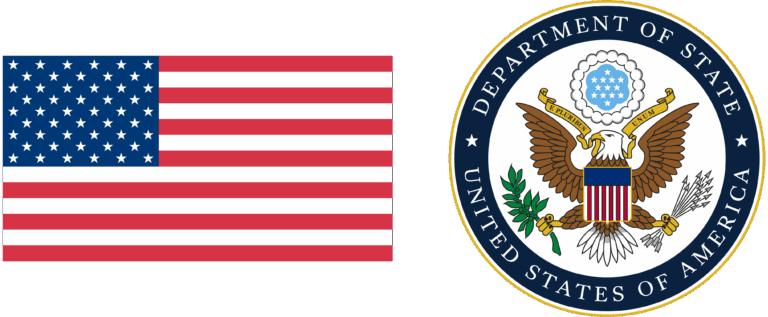Pack Smart
Prepare a travel health kit with items you may need, especially those that may be difficult to find on your trip.
If you have specific medical conditions, check with your healthcare professional for any additional items to consider bringing along. Be aware that some countries have restrictions on what medications you can bring with you, so check with the U.S. Embassy for the country you are traveling to.
The list below provides a wide range of items to consider including in your travel health kit. You may not need every item. What you pack depends on your destination and the health risks specific to that area. Check CDC’s Destination webpages to learn more about the health risks at your destination and what to pack.
Documents
Bring copies of these documents with you on your trip. Documentation requirements may vary by destination. Check your destination’s website to ensure your documentation is in the correct format (print or digital) and whether additional documentation is required. If possible, keep a print and digital version of each document with you during your trip.
- Copies of your passport and travel documents
- Contact card with the street addresses, phone numbers, and e-mail addresses of a family member or close contact in the United States
- Lodging information for your destination(s)
- Information for your healthcare professional(s) at home
- Copy of immunization records
- Proof of yellow fever vaccination (if required for your trip)
- Copies of prescriptions (medications, glasses, or medical supplies)
- Health insurance card and documents (including travel insurance)
- List of hospitals or clinics (including emergency services) in your destination(s)
- US embassy or consulate information for your destination(s)
Medicines
- Antacid
- Antibiotics, if prescribed by your healthcare professional, such as for travelers’ diarrhea
- Antihistamine
- Antimalarial medicines, if prescribed by your healthcare professional
- Antivirals, if prescribed by your healthcare professional, such as for influenza (flu)
- Cough drops, cough suppressant, or expectorant (a medicine that helps loosen mucus)
- Decongestant
- Diarrhea medicine (such as Imodium or Pepto-Bismol)
- Laxative (mild)
- Motion sickness medicine
- Pain and fever medicine (such as acetaminophen or ibuprofen)
- Prescriptions, preferably in their original bottle
- Sedative or sleep aid (mild)
Supplies
- Condoms
- Diabetes testing supplies
- Disease-specific rapid tests
- Earplugs
- First-aid kit
- Glasses, contact lenses, contact lens solution, and hydrating eye drops
- Hand sanitizer (containing at least 60% alcohol) or antibacterial hand wipes
- High-quality masks
- Insect repellent (with an active ingredient like DEET or picaridin)
- Medical alert bracelet or necklace
- Sunglasses and hat
- Sunscreen (with UVA and UVB protection, SPF 15 or higher)
- Water purification tablets or filter
Additional Resources
- Check the Transportation Security Administration website for updates on permitted and prohibited items, including medicines and medical devices that you are allowed to carry onto an airplane.
- Some items may not be allowed in other countries. It is a good idea to check the Customs and Import Restrictions section of the U.S. Department of State Tips for Traveling Abroad.
- Enroll in the Department of State Smart Traveler Enrollment Program to get the latest safety updates and help in an emergency.
Travel advice
Credits
People travel for many reasons, including to learn about unfamiliar places and cultures, to visit friends and families and for professional purposes. Travellers may, however, encounter various health risks while away from home. It is important to be prepared for them. Anyone planning travel should seek information or advice on potential health risks before travel with the goal of staying safe and healthy while away.
This page provides information about infectious disease risks and vaccination requirements and links to additional sources of information about travel and health.
Medicine and Health
When traveling outside the United States, it’s important to understand local medical services in your destination and prepare for any potential health needs.
Your health abroad
Review the Health information for your destination before you travel. This way, you will know about available medical services, health risks, and any rules for traveling with certain prescription medications.
Getting medical help abroad
The U.S. government does not pay medical bills abroad. You are responsible for all hospital and medical costs. In many locations, payment or a deposit is required before any services are provided.
If you or a U.S. citizen you’re traveling with gets seriously ill or injured while abroad, we can:
- Help you find local doctors or hospitals.
- Contact your family or friends if you give us permission.
- Explain available options for sending and receiving money and other financial assistance.
You can also find lists of local doctors and hospitals on the U.S. embassy or consulate(opens in a new tab) website.
Before you travel
Check your health insurance coverage
Make sure you understand what medical services your health insurance covers outside the United States. If your insurance is accepted abroad, take your insurance card and claim forms with you.
Medicare does not cover medical costs outside the United States. Visit Medicare.gov(opens in a new tab) for more information on traveling outside the United States.(opens in a new tab)
Consider medical evacuation insurance
Some health insurance plans cover typical medical costs abroad. Most plans do not pay to bring you back to the United States if you need special medical evacuation by air ambulance.
Medical evacuation by air ambulance back to the United States can cost from $20,000 to $200,000, depending on where you are and your health condition. Consider buying medical evacuation insurance as part of your travel insurance coverage.
Verify prescription medication rules for travel
Check with the foreign embassy of each country you plan to visit or pass through for any prescription restrictions. Make sure these countries allow your medicine at customs, especially prescriptions like medical marijuana, ADHD medications, and sleeping pills. Some countries require special permissions or government permits.
- Bring enough medicine for your whole trip, plus a few days in case of travel delays.
- Ask your doctor to write a letter explaining your medical condition. They should list all your prescription medicines by their generic names. Keep the letter with your medicines in their original package, in a safe place.
- Take copies of your prescriptions with you.
It’s important to know local laws. Entering another country with certain medicines, even if they are legal in the U.S., could lead to your arrest or detention abroad.
Check vaccination requirements
Some destinations require vaccinations. Before you travel, check the vaccination requirements for the destination you plan to visit.
- Yellow card: You may need to carry an International Certificate of Vaccination(opens in a new tab), or proof of other shots or medical tests. This is commonly known as a Yellow Card. Contact the foreign embassies directly for current requirements.
- Malaria: Visit the CDC(opens in a new tab) and World Health Organization (WHO)(opens in a new tab) websites for recommended vaccinations and malaria prevention tips. The CDC also has information on choosing medicines to prevent malaria.
Medical tourism
Every year, tens of thousands of U.S. citizens travel abroad for medical care. This includes cosmetic surgery, dental care, and other procedures and services.
If you’re thinking about traveling abroad for medical care, you should:
- Check the doctor’s training, qualifications, and reputation.
- Visit the CDC Traveler’s Health medical tourism(opens in a new tab) information.
- Review destination-specific medical tourism information in the Health section of the Travel Guidance for your destination.
Be prepared for a pandemic
Review the CDC information on pandemic influenza(opens in a new tab). During a pandemic, virus control measures could affect your travel or delay your return home to the United States:
- Other countries might suddenly close borders.
- Airlines and other transport services could stop operating.
- Some countries might quarantine people who seem sick or test positive.
- Consider buying travel insurance with coverage that includes trip cancelation due to disease outbreaks or pandemics and international medical care coverage.
Air quality abroad
Air pollution can be a problem in many destinations abroad and can change quickly. Smog or heavy particle pollution can affect your health.
Use NASA’s Air Quality Forecast(opens in a new tab) tool to view a 3-day forecast of expected air quality around the world. It uses Artificial Intelligence (AI), global air pollution models, and historical data.
People at greatest risk of illness from pollution include babies, children, teens, and older adults.
Anyone with these health conditions should talk to their doctor before traveling to places with poor air quality:
- Heart disease
- Asthma
- Chronic obstructive pulmonary disease (COPD)
- Chronic bronchitis
- Emphysema
- Other lung diseases




